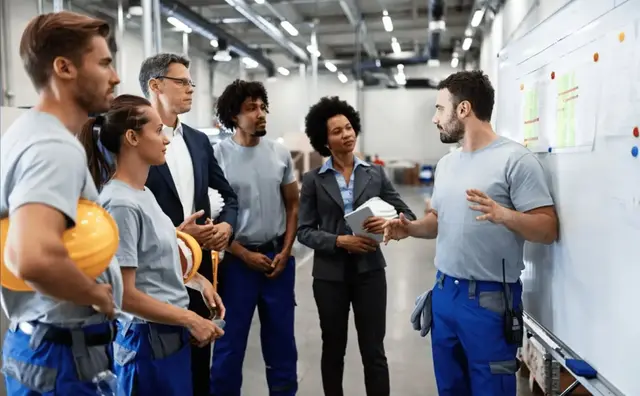How AI in Education Enhances Personalized Learning Experience
Are you taking a back seat in terms of gaining knowledge about the recent technological advancement of Artificial Intelligence? Well, be it virtual assistance or the accessibility to self-driving cars, AI is spreading across all industries. Now are you aware of the contribution of AI in the education sector? If not, this blog is the right place that you have picked up for upgrading the sphere of your knowledge.
There is a significant growth of AI in the education sector which has been leveraging the learning process in terms of opening up the possibility of adaptive assessments, personalized processes of learning, and intelligent tutoring systems. Furthermore, the implication of machine learning development solutions has helped educational institutions to deeply understand the core insights of any student’s overall performance, their weak and strong points.
The AI tools and technical methods are continuously improving the teaching process in the educational institutions and it is replacing the traditional way of teaching methods. Now, let’s take a deep dive into different factors of the personalized learning process where AI has a major role to play in the education sector.
Adaptive learning systems
One of the major areas of a personalized learning system is the adaptive learning method. This particular method allows organizations to use basic software programs. These programs analyze the difficulty level of any content and its pace of it through their own algorithms. It further assists the organization to understand a student’s overall behavior, their learning performance, and their choice of any specific subject matter. Now adaptive learning systems can also suggest learning methods, assessments, and different measures of learning activities based specifically designed for learning, keeping track of their goals, skillset and previously gained knowledge.
The adaptive learning system has another interesting point in improvising the educational method with the assistance of AI. This includes personalized and immediate feedback from the learner’s side. Also, the final outcomes of their achievements and progress are measured. Depending on the overall analysis, the insights and reports are generated and shared.
Intelligent tutorial systems
This is another set of software programs that replace the overall human tutorial system. By adopting the intelligent tutorial system, institutions can create small group instruction sessions, and create a dialog repository for their students. Further, it offers an innovative credibility of delivering instructions based on a particular learner’s weaknesses and strengths in any specific subject area. Speech recognition and the natural learning process are the two most important parameters of an intelligent tutorial system that helps learners to engage in a conversational learning scenario.
Social implications on educational institutions
The ethical and social implications of Artificial intelligence in education is another major area that falls under close consideration. The concern of security of personal information and data privacy comes under this purview. Institutions need to ensure the high security of these data while collecting and analyzing it through the adaptation of personalized learning methods.
Sometimes the credibility of AI is questioned in terms of equity. The personalized learning system creates a considerable amount of disparity as the learners get limited access to these advanced technologies. Therefore, it will be a wise move if AI-enabled tools get designed in such a way that learners get equal opportunities to execute and showcase their performance.
Augmented and Virtual Reality in the Education sector
Augmented and virtual reality (AR/VR) technologies have the potential to revolutionize personalized learning experiences. These immersive technologies enable students to interact with virtual objects and environments, enhancing their understanding of complex concepts. For example, students can explore historical landmarks, simulate science experiments, or participate in virtual field trips.
AR/VR also facilitates personalized instruction by adapting to individual student needs. Intelligent algorithms can analyze student responses and behaviors in real time, providing immediate feedback and adapting the learning environment accordingly. This adaptive nature of AR/VR allows students to learn at their own pace, reinforcing concepts that they find challenging and progressing quickly through familiar topics.
Concluding Thoughts
So, these were some of the crucial aspects of how AI in education is empowering personalized learning systems. It is filling up whatever gap is arising within the system. Also, AI has an immensely crucial role in automating the entire educational system in such a way that institutions are moving toward growth. The individual experience of each learner is also getting enhanced because of the implication of AI tools in the system. There are a large amount of upholding administrative tasks which has significantly enhanced the overall efficiency of both teachers and students as well.
Artificial intelligence solutions in the education sector have also increased the data security and protection of a learner’s personal information. A data breach is a major concern in any given sector nowadays. The improvisation of different AI tools has increased the chances of incorporation into the internal system of any educational institution.







